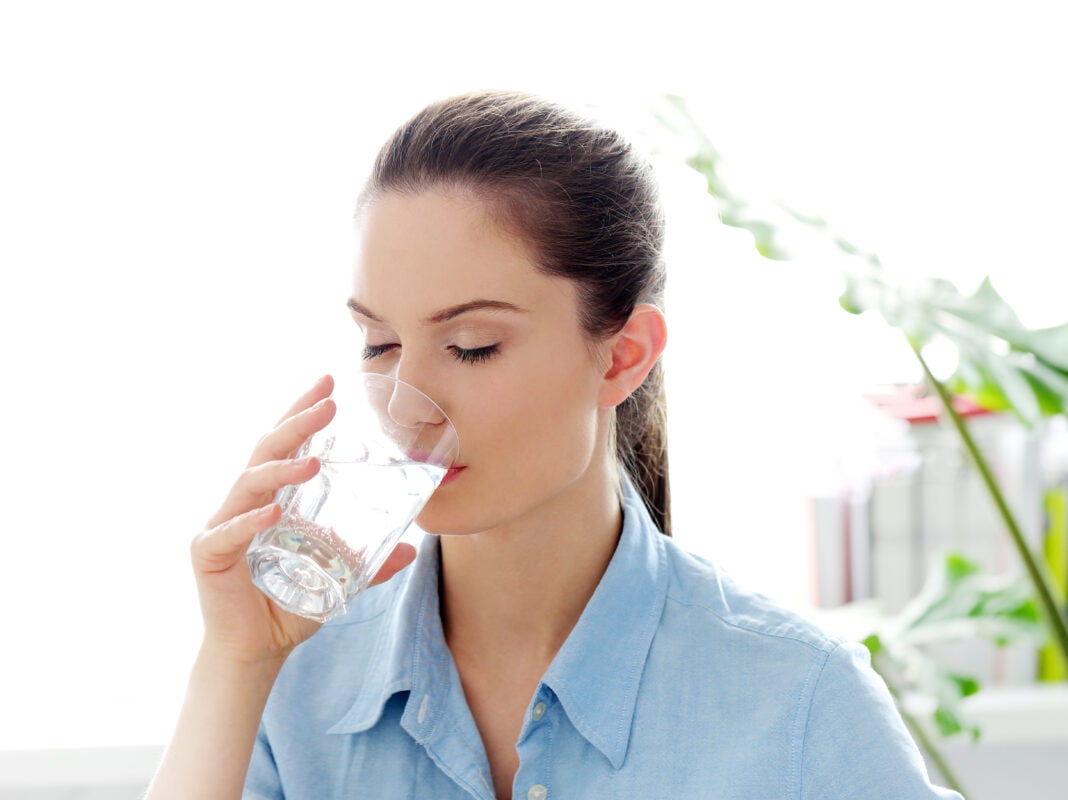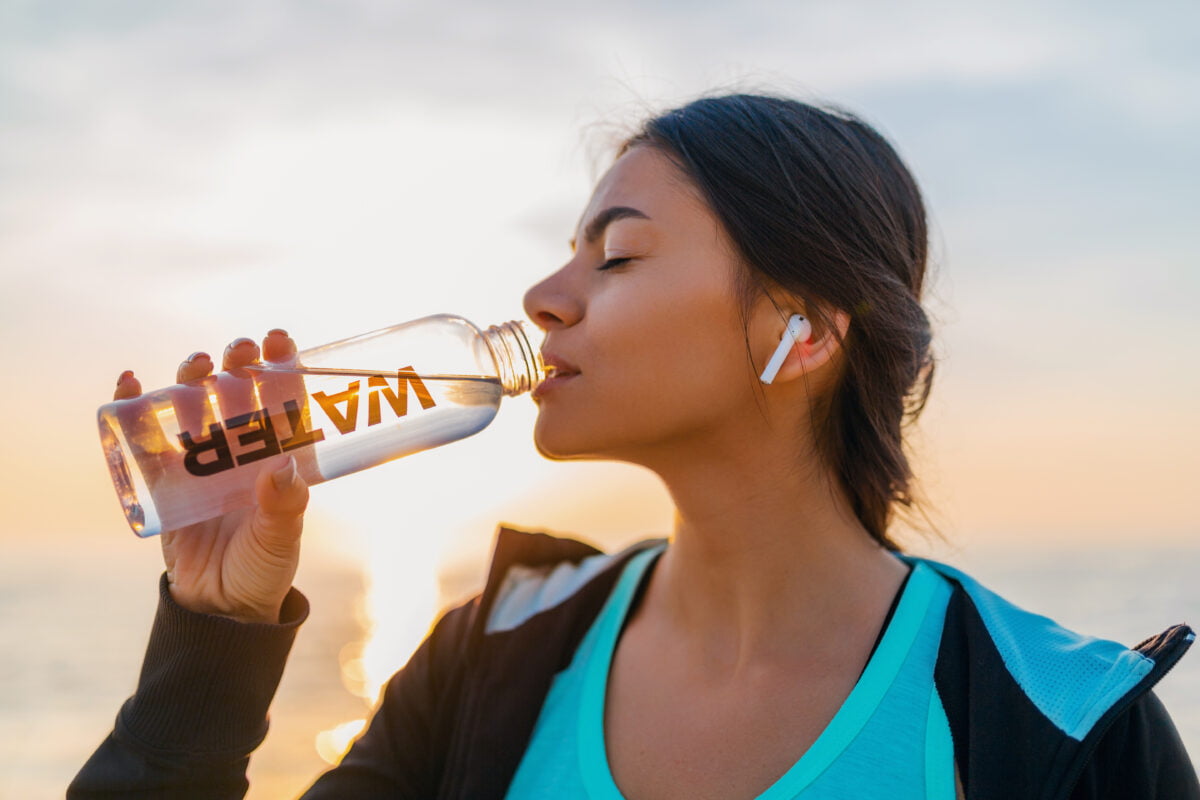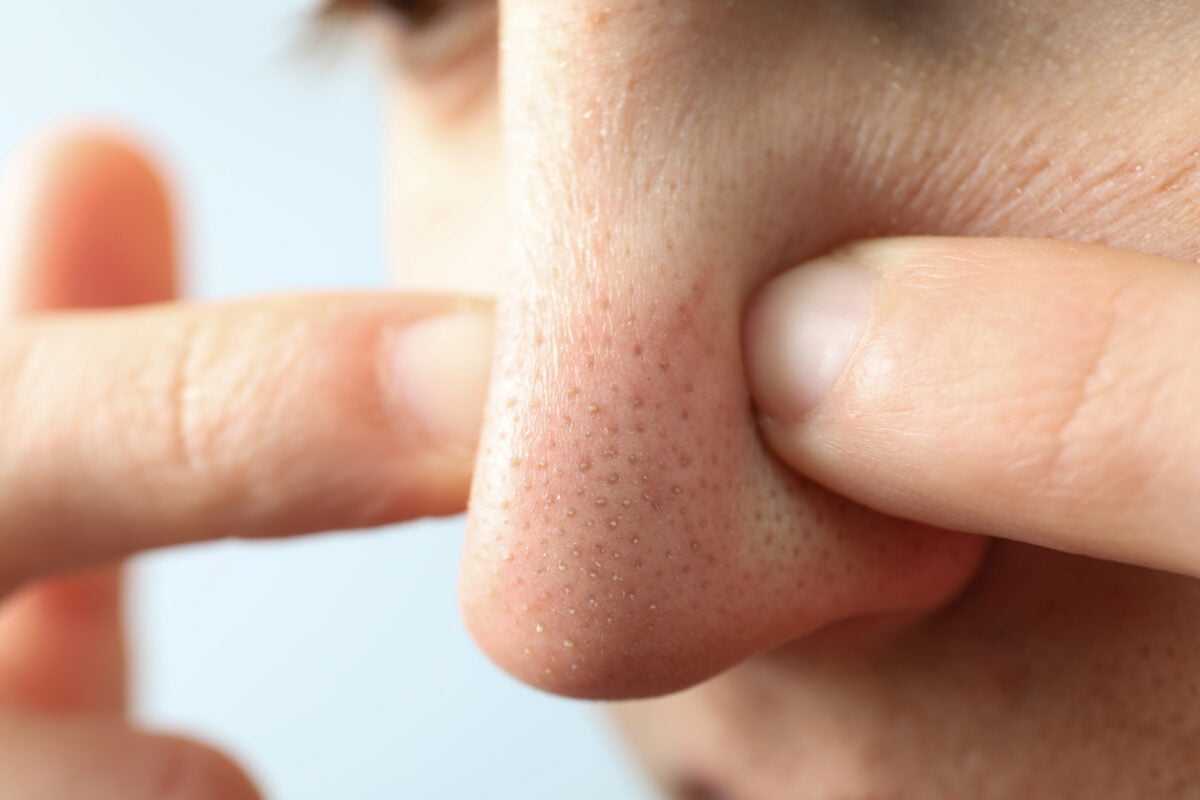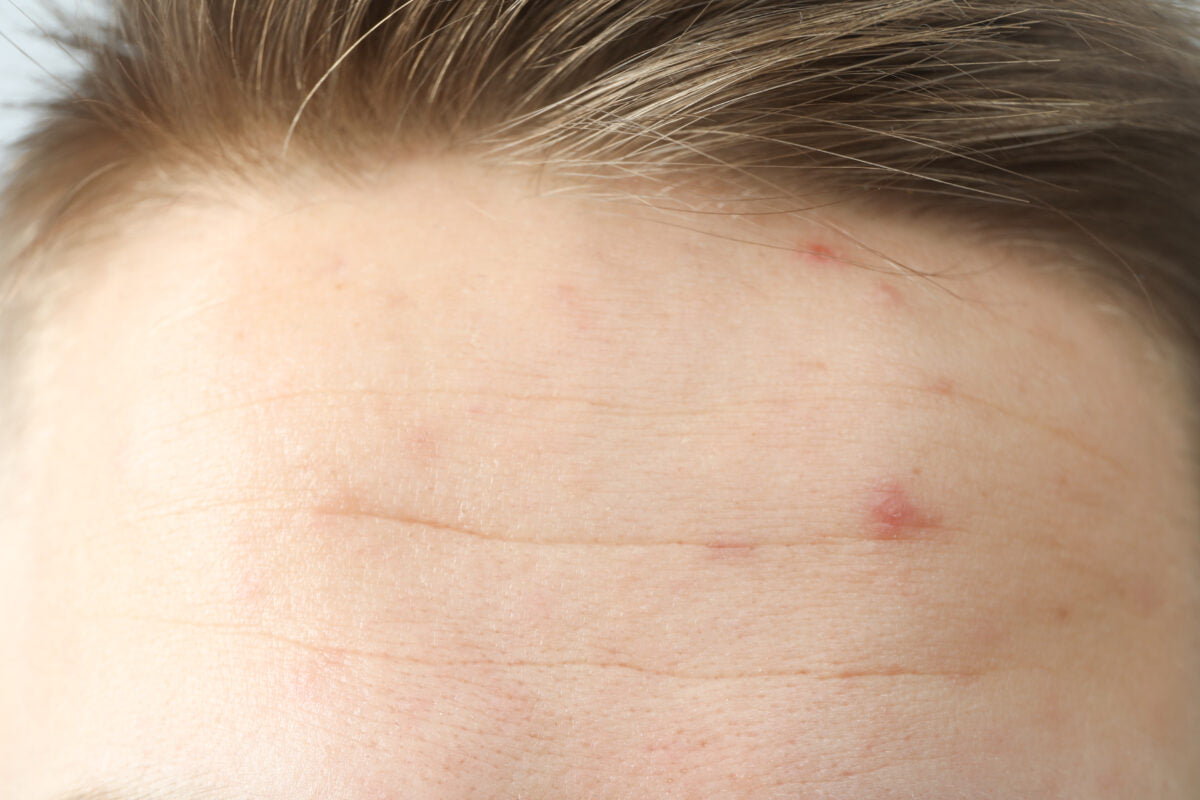Picking the right foundation that matches your skin tone and skin type can be tricky. And if you have dry skin, that means double the effort. But no more cakey or parched makeup look! We have compiled this informative guide on the five best foundations for dry skin to make it easier for you to create a flawless makeup look. 5 Best Foundations for Dry Skin 1. Charlotte Tilbury Foundation Are you fond of full coverage makeup look but always end up creating a foundation faux pas look such as cakiness making your pores more prominent? Consider using Charlotte Tilbury Foundation to achieve full coverage makeup without the risk of dry lines or cakiness on the skin. It gives your skin an airbrushed look by effortlessly covering pores, pimples, and dark circles under the eyes. On top of that, it comes in 44 different shades so you can use one that matches your skin tone. 2. Jane Iredale Dream Tinted Moisturizer If you have dry skin, then Jane Iredale Dream Moisturizer is going to be one of your favorite foundations. It does not only help you create a flawless makeup look but its tinted moisturizer also keeps your skin well hydrated. Jane Iredale contains titanium oxide that protects your skin from sun rays and treats any redness on the skin caused due to dryness. Besides soothing properties, it also includes algae extracts that prevent moisture loss and keeps your skin supple. Its water-resistant quality makes it last all day long. 3. Catrice True Skin Hydrating Foundation Catrice True Skin is another beauty brand that offers an amazing foundation to its dry skin customers. The best thing about this foundation is it’s alcohol-free and doesn’t dry out your skin further. When you apply this foundation, it quickly melts into your skin. Its lightweight liquid formula gives your skin a soft natural look. In addition, the Catrice hydrating version contains hyaluronic acid that helps keep your skin moisturized and hydrating. 4. Fashion Fair SkinFlex Stick Foundation Fashion Fair is one of the first-ever black cosmetic lines introduced 56 years ago. If you have a dry, dark skin texture, then this foundation can be a great choice for you. Fashion Fair Skin Flex Stick offers 16 different shades, which means almost every black girl finds a perfect foundation match here. The foundation’s version for dry skin includes soya bean oil which has antioxidant-rich hydrating properties and keeps the skin moisturized. It also contains vitamin E which helps soothe inflammation. Plus, the lightweight creamy formula is easy to blend and doesn’t make your pores look more prominent. 5. Kosas Tinted Face Oil As its name says, this foundation feels much like face oil. If you are looking for a lightweight hydrating foundation for your dry skin, then give Kosa’s a go. This weightless foundation comes in 16 different shades. It’s similar to serum and feels comfy while wearing. Best for those who don’t like wearing heavy foundations as Kosas Tinted Face oil gives a natural, velvety look. Bottom Line We hope the above-shared list of the best foundations for dry skin helps you find the right foundation for your needs. Don’t forget to thoroughly remove any makeup on your face before going to bed to avoid your skin pores from being clogged. Do you have something to add to the list? Do share with our readers in the comments below!
Accutane or isotretinoin is usually considered the ‘ultimate solution’ for severe acne caused by excessively oily skin. It is a derivative of vitamin A that is generally prescribed to treat acne-prone and oily skin. Research claims that Accutane is highly effective in treating or declining acne by minimizing its significant causes. It is potent and efficient; however, it might also show side effects. Many people also ask if oily skin can return after Accutane. Let’s find the answer! How Does Accutane Work? One of the leading causes of oily skin is clogged skin pores caused by dust, bacteria, excess oil, and dead skin cells. The buildup of excess oil in the clogged pores can cause acne as oil assists the bacteria to live and grow their colonies. Thus, the main goal for people with oily skin is to combat bacterial growth in clogged pores. Accutane works by reducing the activity of the sebaceous glands, resulting in less oil production. Bacteria find a less favorable environment to live in, helping skin prevent acne and extreme skin oiliness. Moreover, Accutane also boosts cell turnover rate and prevents skin inflammation. Can Accutane Permanently Shrink Sebaceous Glands? Accutane reduces the pores and shrinks the sebaceous glands to reduce oil production and fight inflammation, thus helping treat acne. Isotretinoin also assists the oil glands in self-destructing. Generally, the Accutane course duration is six months, during which you may experience reduced oil production in skin cells. However, skin oil production may get back to normal limits at the end of the treatment. Can Accutane Show Side Effects? Usually, Accutane is considered a safe drug posing no serious complications; however, almost every patient suffers from mild to moderate associated health problems. Sebum is essential for healthy skin due to its antibacterial and anti-inflammatory properties. It helps hydrate the skin and stabilizes pH, thus acting as a powerful protector. Accutane is directly involved in reducing the activity of sebaceous glands that can lead to dry skin pores. However, extreme sebum reduction in skin cells is the main reason behind the acute side effects of Accutane. Resultantly, the patients may experience some signs such as: Xeroderma or dry skin Cracked lips Dry eye syndrome Eczema Arthralgia Research shows that the activity of sebaceous glands might resume after stopping the Accutane treatment with less severity. Can Oily Skin Return After Accutane? Accutane can help get rid of oily skin but not permanently as some factors may aggravate sebum production. Even after the end of Accutane treatment, the most common cause of oily skin may be hormonal Imbalance. Sebum can be produced by two main hormones named, testosterone and cortisol (stress hormone). The upsurge of these hormones can lead to acne and intense oily skin. A study suggests that doctors should focus on treating endocrinological problems in female patients besides Accutane treatment. This practice can be proved more beneficial for curing oily skin and acne problems. Bottom Line If you’re considering Accutane treatment for your oily skin, I suggest you discuss all the pros and cons with your dermatologist. Remember, no treatment can give you permanent relief from oily skin; however, Accutane is a suitable option for getting long-term results.
Oily skin is the dilemma of millions of people around the globe. It can be caused by hormonal imbalance, genetics, or hot and humid weather. However, sometimes, you may witness sudden skin oiliness without any visual factor. In this case, extreme skin oiliness can be a worrying sign that must be consulted with your dermatologist. This article is going to describe the main reasons behind the sudden change in your skin texture from dry or combination skin to oily skin. Keep reading! 6 Top Reasons Your Face is So Oily All of a Sudden Dehydration Dehydrated skin can be one of the main causes of oily skin. The dehydrated skin transmits signals to the cells about extreme skin dryness. Thus, skin boosts the activity of the sebaceous glands to keep the skin moisturized. An imbalance in the body and skin hydration can cause dull and damaged skin. The healthy way to keep your skin optimally nourished and moisturized is by increasing your water intake. Hormonal Changes The most common factors responsible for disturbed hormones are irregular periods, PCOS, birth control, or pregnancy. Hormonal imbalance can cause hyperactivity of the sebaceous glands, causing increased oil production. Consequently, overactive sebaceous glands may also cause acne breakouts. Over-Exfoliation Handling your skin with gentle care is a prerequisite for healthier and well-nourished skin. Harsh scrubbing may irritate the skin by inducing skin sensitivity and malfunctioning of the sebaceous glands, leading to excess oil, rash, inflammation, or redness on the skin. Try gentle exfoliation, preferably with natural exfoliation products as they are gentle enough for your skin texture. Unhygienic skin Wearing heavy makeup all day long and not removing it before going to bed is an awful practice. It can cause clogged skin pores, leading to oil, toxins, and dust build-up. Thus, skin appears oily as the excess oil can’t absorb in the pores, leading to acne, pimples, and hyperpigmentation. Moreover, popping blackheads can also stimulate oil production, so you must avoid it. Unhealthy Diet A healthy, balanced diet plays a magical role in maintaining skin moisture and glowing skin tone. However, the consumption of fast foods, alcoholic beverages, bakery items, and processed foods has increased tremendously, leading to multiple health and skin-related problems. Besides that, foods with high sugar and salt content or artificial flavors may also induce skin oiliness and acne. Increase intake of fresh fruits and raw vegetables instead of consuming unhealthy foods to get youthful and balanced skin. Certain Skin Disorders Sometimes, specific skin lesions can disturb the healthy balance of skin moisture. The most common skin disorder causing skin oiliness is seborrheic dermatitis, in which greasy patches appear on some areas such as the face, chest, and back. It is an inflammatory disorder that can more commonly develop in patients with Parkinson’s disease, AIDS, and the dysfunctionality of the autoimmune system. Bottom Line If you’re wondering why your skin is suddenly developing excess oil, check your hormones, nutrition, and the skincare products you use daily. Finding the exact cause may help you take the required actions to eliminate the problem permanently. A specific skincare regimen can assist in efficiently dealing with excess sebum.
Skin acts as a thermo-regulator to protect the internal body organs from harsh weather and environmental pollutants. It comprises around 64% water, which means hydration is important to maintain your skin’s elasticity and resilience. Moreover, a well-hydrated skin is less prone to premature aging signs such as wrinkles and fine lines and also helps boost natural skin nourishment. Let’s have a look at how staying hydrated helps you get glowing and radiant skin naturally. 7 Benefits of Hydration for Skin Balances pH Maintaining a good pH balance is essential for blemish-free and radiant skin, specifically in acne-prone skin. Increasing your water intake is vital to keeping a pH balance for healthier skin. Research shows that the acidic pH range (pH 5-6) is considered optimum for the proper functioning of skin microbiota (microorganisms involved in skin protection). However, an alkaline pH range (pH 8-9) may cause the dispersal of beneficial resident skin microbiota, resulting in dull skin texture and radiance deterioration. Improves Skin’s Healing Capacity Dehydration may cause minor cuts, wrinkles, or tiny pimples on the skin. A well-hydrated skin helps improve oxygen and blood flow throughout the body, which enhances the skin’s healing capacity. Nourishing your body with an ample water supply can also help get rid of popped pimples, blemishes, and other marks. Reduces Puffiness Drinking an adequate quantity of water can naturally flush toxins from your body, thus reducing the risk of acne, bloating, and skin puffiness. Moreover, it also boosts the production of skin proteins required for skin elasticity and fragility, thus helping to get juvenile skin. Improves Skin Elasticity An adequate amount of water intake helps regulate skin moisture by balancing its water and oil content. This will improve your skin elasticity and results in firmer skin with more cell turnover rate. Furthermore, adequate body hydration may increase oxygen circulation throughout the body, promoting the production of collagen and elastin proteins. Reduces Skin Sensitivity Dehydrated skin is at a greater risk of enhanced skin sensitivity, leading to acne, blemishes, and frequent infections. A properly hydrated body can nourish the skin by improving cellular functions and boosting its immunity against pathogens or environmental pollutants. Moreover, drinking enough water can also help reduce inflammation by flushing out the harmful toxins, thus providing relief against itchy and irritated skin. Delays Aging Signs Optimum hydration can boost your skin juvenility by delaying the aging signs such as wrinkles and fine lines. It also helps keep the water barrier intact around skin cells, thus protecting the skin from damage and promoting cellular metabolism. Hydration also makes your skin healthy and glowing with fewer chances of cracked, itchy, and flaky skin. Bottom Line From improving skin elasticity and texture to reducing aging signs, staying hydrated can do wonders for your skin. Drink plenty of water to reduce the chances of dehydration and avoid damaged and flaky skin. A topical application of skin moisturizers can also nurture and shrink your skin cells, making them less likely to cause clogged pores. The better the skin is moisturized and hydrated, the less likely to have breakouts. In addition to this, consider taking Diamond Gow with your drinks. It’s a powdered multivitamin supplement that helps nourish your skin, reduce wrinkles, revive skin freshness, and improve overall skin health.
Do you drink enough water to stay hydrated? If not, you’re putting your health at risk of various health conditions such as constipation, dull skin, fatigue, and more. Drinking around 6-8 glasses of water a day is considered ideal; however, the required quantity depends on your body weight. Staying hydrated helps you maintain perfect weight, prevent diseases, combat fatigue, and reduce stress. It also regulates body temperature and improves blood circulation, thus helping attain ideal health. Let’s have a look at some vital roles of hydration in our bodies. Keep reading! 7 Amazing Benefits Benefits of Staying Hydrated for Your Body Helps Weight Loss Increasing water intake helps reduce weight as it provides a satiating feel, thus helping reduce calorie intake. According to a study, consuming around 500ml water combined with a hypocaloric diet before each meal significantly contributes to weight loss than individually following a hypocaloric diet plan. Another study reveals that increasing body hydration may help lose weight in premenopausal women aged 25-50 years. Improves Physical Fitness Staying hydrated can boost your energy and physical fitness. It lubricates joints, strengthens muscles, reduces fatigue, and improves overall health. Moreover, a well-hydrated body enhances the functioning of vital body organs such as the liver or kidneys. So, the body becomes more active and healthy even in old age. Reduces Joint Pain Water makes up about 80% of the cartilage in our joints. Staying hydrated keeps your joints lubricated, which reduces friction by providing an extra “cushion” between the bones. Less friction ensures fewer aches and pains and smoother-moving joints. Boosts Cognitive Functions Well-maintained body hydration is essential for better health and cognitive functions. Many studies indicate that extreme dehydration can have a negative impact on brain functionality and memory status. According to The National Institute of Health, a person’s cognitive performance decreases with every 2% decrease in body weight caused by dehydration or physical exertion. Thus, proper intake of fluids is essential for mental health. Boosts Immune System Keeping yourself well-hydrated is an excellent way to combat various diseases such as constipation, urinary tract infections, cardiovascular problems, kidney stones, etc. A hydrated body boosts your immunity, hence helping fight chronic diseases. Improves Kidney Functioning Kidneys are the body’s essential organs involved in carrying out the filtration process by removing the toxins from the blood. Dehydration often results in compromised kidney functionality, leading to a build-up of wastes or toxins. Proper hydration improves the filtration process, thus improving the GFR (glomerular filtration rate) of kidneys. Helps Prevent Headaches or Migraine Headache is a common sign of dehydration, and drinking enough water can help relieve the symptoms and severity of frequent migraine. However, extensive research is still needed to back the beneficial role of water intake in reducing or preventing headaches. Bottom Line Even minor dehydration can cause mental and physical health problems. To avoid dehydration, try to maintain a minimal fluid consumption target. Drinking recommended amount of fluid in the form of water, juices, or tea can help to boost your body metabolism and improve your overall health. You can also consider taking Diamond Glow with your fluids. It’s a powdered supplement that helps boost energy, improves your skin health, and helps with overall hydration.
The T-zone area, specifically the nose, is the most sensitive area of the skin vulnerable to acne breakouts such as pimples, whiteheads, and blackheads. Whiteheads or closed comedones are non-inflammatory skin lesions that may develop on the nose when skin pores become clogged due to dead skin cells, dust, toxins, or excess sebum. They’re annoying and stubborn that may get worse if not treated carefully. However, you can remove and prevent whiteheads on the nose by knowing how and why they develop. Let’s discuss various causes behind whiteheads on nose and possible treatment options for them. Whiteheads on Nose Causes It’s natural for skin pores to have dead skin cells and oil. Dead skin cells are inevitable since your skin continually produces new ones to replace them. Natural skin oil (sebum) is essential for healthy and well-moisturized skin. However, dead skin cells and excessive oil production can turn your clogged pores into whiteheads. Besides this, there are various other factors that may cause whiteheads on the nose such as: Hormonal changes Pollution and excess humidity Puberty Menstruation Pregnancy Contraceptive drugs OTC Treatment for Whiteheads on Nose Over-the-counter (OTC) medication is one of the most common treatment options for whiteheads. The most effective OTC treatments may include: Salicylic Acid Salicylic acid is used widely in numerous skincare products due to its amazing benefits for healthier, blemishless, and acne-free skin. It is amazingly good for removing the dead skin cells and keeping pores clear from unwanted debris without damaging skin nourishment, thus helping reduce the risk of whiteheads formation. Benzoyl Peroxide It targets bacterial infections and inflammatory toxins, thus reducing the risk of closed comedones and acne. Retinoids Retinoids have been used extensively in the skincare industry for many years due to their ability to boost skin’s natural cell turnover and improve skin texture. They help remove the clogged pores, hence minimizing the risk of acne, whiteheads, and blackheads. Glycolic Acid It is a kind of alpha hydroxy acid and is highly effective in preventing acne breakouts. It opens the clogged pores and removes the topmost dead skin cells, leaving skin youthful and fragile. Azelaic Acid Azelaic acid is a gentle skin ingredient that helps prevent whiteheads formation by keeping skin pores clean. It effectively treats the skin from acne lesions, redness, inflammation, pigmentation, and oily skin problems. Other Tips to Prevent and Treat Whiteheads on Nose It’s better to prevent your skin from developing whiteheads by following a good skincare routine and using high-quality and gentle products. However, sometimes preventing whiteheads is difficult if caused by medical reasons. Some preventive tips are mentioned below that might help treat or prevent whiteheads: Follow good skin hygienic practices to keep your skin from accumulating debris or developing dead skin cells. Ensure using non-comedogenic products to reduce the risk of forming whiteheads. Regular cleansing, moisturization, and exfoliation is the best way to prevent or get rid of whiteheads. Ensure gentle massage or scrubbing as harsh treatment may trigger the development of whiteheads on the nose. Bottom Line Whiteheads on the nose can be tricky to get rid of. Consult a dermatologist if the home remedies or OTC treatments don’t help you eliminate whiteheads on the nose. Untreated whiteheads can cause severe skin problems, leading to skin damage.
Glutathione has become a hype in the skincare and beauty industry for its antimelanogenic and antioxidant properties. Many ask if l-glutathione can help treat hyperpigmentation and lighten the skin. If you’re also wondering if glutathione is really worth it and safe for your health, then you’ve come to the right place. Let’s dive deeper into if l-glutathione is good for skin whitening. How Does L-Glutathione Work? L-glutathione is an antioxidant found in fungi, plants, and other organisms. It consists of amino acids produced by the liver and nerve cells in the central nervous system. Moreover, its antioxidant properties can help prevent cell damage due to free radicals and peroxides. This antioxidant is made of three amino acids, cysteine, glutamic acid, and glycine which protect you from many diseases and also prevent toxins. It fights free radicals that cause skin blemishes, dark spots, and pigmentation. Damaged cells appear on your skin in the form of melasma. Glutathione removes these damaged cells and brings back the skin’s natural brightness and glow. Usually, glutathione pills are taken to treat such skin disorders. Consuming l-glutathione supplements increase the production of collagen peptides that help keep your skin youthful and also lower melanin production. A study conducted on the effectiveness of glutathione for skin reveals that glutathione increases collagen levels in the bloodstream which results in the higher production of hyaluronic acid in your body. Hence, improving the water content of your skin and keeping it moisturized. Glutathione’s amino acids supply makes it free of toxicants or free radicals that may damage your skin. It actually acts as a cleanser to remove skin impurities, lighten dark spots, and restore your brighter completion. Glutathione can also reduce hyperpigmentation as it supports the activation of enzymes that function to remove toxins. How to Take L-Glutathione for Skin Whitening Glutathione is available in different forms, including injections, pills, and beauty soaps. These supplements are often packed with vitamins, minerals, and proteins that help nourish your skin. Usually, people who have uneven skin tone issues take glutathione in the form of pills. To see its effectiveness, consider consuming glutathione pills for 4-6 months regularly. You can find glutathione in pharmacies and beauty product shops. The Only Problem that Comes With Glutathione The only drawback associated with glutathione intravenous treatment is the cost. It is quite expensive, which makes it a bit difficult for everyone to afford. However, its lotion and creams are low-priced. Bottom Line L-glutathione is a popular ingredient used in skin whitening pills and creams. It’s also used by dermatologists for skin whitening and treating many skin conditions such as hyperpigmentation, acne, and dark spots. It also helps protect your skin from toxins and removes impurities, thus giving you clearer and healthier skin. Besides pills, you can consume foods rich in glutathione, such as tomatoes, asparagus, and more, or take supplements that contain glutathione such as Diamond Glow. It’s a powdered supplement that contains vitamins, l-glutathione, and other natural ingredients that help lighten the uneven skin tone and scars. Whether you are planning to take glutathione pills or apply creams available on the market, it’s better to consult a skin specialist for the appropriate dosage and instructions.
Forehead acne may develop when sebaceous glands under your skin surface become clogged by dead skin cells, sebum, or bacteria. It looks agitating and may appear in the form of pimples, blackheads, whiteheads, or even cysts. The OTC medications and proper skincare routine can help prevent or remove forehead acne. Moreover, you should avoid popping forehead acne as it can trigger skin sensitivity. Let’s have a look at the major causes of forehead acne and treatment options for them. Causes of Forehead Acne Clogged Skin Pores The most important reason behind forehead acne is blocked skin pores, either due to bacteria, pollutants, dead skin cells, or excess oil. Whenever a skin pore clogs, it becomes inflamed causing skin infection and acne breakout. Hormonal Imbalance Sometimes, hormonal imbalance may result in acne breakouts. It causes increased oil production in skin pores that in turn interacts with skin bacteria present in hair follicles and causes acne. The most common reasons behind acne that develops due to hormonal imbalance are PCOS, a disturbed menstrual cycle, pregnancy, pre-menopause, and testosterone treatment. Stress Increased levels of stress hormones can trigger excess oil production in skin pores and exacerbate acne problems. Moreover, stress may also induce skin inflammation that can worsen acne breakouts. However, some experts believe that stress may not induce acne but can trigger its development. Puberty An increase in sex hormones called androgens occurs during puberty, resulting in overactive sebaceous glands. Thus, skin pores produce excess oil that may clog and stimulate bacterial infection, leading to acne. Hair Products Usually, the hair care products used for hair styling and straightening may trigger acne breakouts on the forehead as some ingredients contain harsh chemicals. Moreover, if your hair is oily and you don’t wash it regularly, the excess oily may block the hair follicles, causing acne breakouts. Treatment Options for Forehead Acne Acne treatment depends on the severity and type of acne. Mild acne may be treated using OTC medicines while severe acne needs to be treated with antibiotics and certain procedures. Over-The-Counter (OTC) Medication OTC acne creams containing benzoyl peroxide, antibacterial cleansers, and salicylic acid are most commonly used for treating forehead acne. You should minimize sun exposure while taking acne treatment to prevent the risk of acne and skin sensitivity. Antibiotics Generally, your dermatologist may suggest oral antibiotics such as tetracycline, minocycline, erythromycin, or doxycycline to get rid of severe forehead acne. However, these antibiotics may take 2-3 months to completely treat the condition. Other Procedures If OTC medicines and antibiotics don’t help eliminate acne signs, then your dermatologist or skin expert may recommend some skin procedures such as laser therapy, chemical peels, multivitamins, or extraction methods. You may choose the type of treatment procedure depending on your skin and acne type. Bottom Line Clogged skin pores, hormonal imbalance, stress, and unhygienic skin are some of the major causes of forehead acne. A few lifestyle changes can help treat mild forehead acne in a few days. However, in case of severe acne, you should visit a dermatologist to consult about your acne type and possible treatment options. You may consider taking Peche’s Diamond Glow, a multivitamin supplement that contains vitamin A, C, D, E, and other natural ingredients to help fight acne, hyperpigmentation, and other skin condition, thus leading to a clearer and brighter skin.
Keeping the topmost layer of skin free from debris and excess oil build-up is crucial for managing oily skin. Exfoliation helps remove the dead skin cells or toxins and makes your skin juvenile and glowing. Regular exfoliation is essential for oily skin as it deeply cleanses the clogged pores and inhibits excess sebum production, hence reducing the risk of acne breakouts. This guide is designed to help you learn how to exfoliate oily skin the right way. Let’s start! Why Should I Exfoliate Oily Skin? Oily skin is susceptible to acne breakouts, blemishes, wrinkles, and premature aging signs as the excess oil prevents the regular shedding of dead skin cells. The build-up of dead skin cells or toxins locks the excess oil in skin pores, causing pimples, blemishes, or blackheads. Regular exfoliation helps the skin cleanse and get rid of clogged pores, thus making skin well-nourished. How to Exfoliate Oily Skin? The foremost requirement to exfoliate oily skin is to be gentle to your skin as harsh scrubbing may increase skin sensitivity. Exfoliation for oily skin is typically a 3-step process, comprising scrubbing, moisturizing, and applying sunscreen. Follow the key steps while exfoliating oily skin to get a radiant and glowing complexion. First, wet your face with simple water and cleanse it with a good-quality cleanser to remove all the impurities from your skin. Apply exfoliant on your skin, preferably containing salicylic acid, glycolic acid, or lactic acid, and massage on wet skin in a circular motion. Ensure doing gentle massage to avoid any irritation. Avoid contacting the sensitive areas, such as the eyes and under the eyes, while exfoliating to prevent skin blemishes and redness. Rinse with cold water and apply a good moisturizer to soothe your skin and balance its natural moisture. You can apply a face serum before applying moisturizer on your skin for the best results. How Often Should I Exfoliate Oily Skin? Regular exfoliation will help your skin appear its best. It’s recommended to exfoliate your skin at least twice a week. However, you can exfoliate up to three times a week if your skin can tolerate it well or once a week if you have sensitive skin. The optimum time to exfoliate your skin is in the morning because the skin repairs during the night by shedding the dead cells and regenerating the new cells. Which Exfoliants are Best for Oily Skin? Salicylic acid, a kind of beta hydroxy acid, is oil soluble that is considered exceptionally good for oily skin. The most important factors that make it exceptionally ideal for oily skin exfoliation are: Salicylic acid can prevent acne by penetrating deep inside the pores. It inhibits excess oil production, the main requirement for healthy skincare for oily skin. Salicylic acid boosts collagen production and contains amazing antibacterial properties, reducing the risk of acne development on oily skin. It contains anti-inflammatory properties which inhibit skin sensitivity and acne breakouts. Be gentle to your skin and choose the skincare products that can efficiently control excess sebum while retaining the natural skin’s moisture.
Glutathione supplements are used as a treatment for cancer, male infertility, memory loss, chemotherapy adjunct, liver and lung diseases, and other health concerns. Its effectiveness depends on how you are taking it. If you’re not taking the appropriate levels of l-glutathione, it may negatively affect your health. We’ve designed this guide to help you learn how to effectively take glutathione. Let’s get started. How to Take Glutathione Effectively To get the most out of this powerful antioxidant, we have listed below some ways to take L-glutathione. Glutathione Supplements Ingestion is one of three effective ways of taking glutathione. However, it may not be the best choice. The reason ingested supplements may not work for many of you is that they are quite expensive and may cause stomach discomfort to some. On the contrary, a glutathione IV drip is more effective and a better option as it ensures much of the glutathione enters the bloodstream by bypassing digestion. However, it may not be a good option for people with certain health conditions. If you want a treatment that does not involve needle injections, consider consuming this antioxidant through different ingestion methods such as: Capsules Tablets Powder form In addition to supplements, there are several foods rich in glutathione that you can easily find at your local grocery store. Before buying any supplement, ensure that you know how much you need and how effectively these ingestion methods work for your body. Glutathione Pills vs. Liquid Supplements In addition to drips, glutathione is available in pills and liquid forms. Both forms come with different advantages. Usually, pills are convenient and cheaper as compared to liquid forms but may contain much less glutathione. The amount of glutathione in these pills is unknown, and different brands offer different amounts of active ingredients. In contrast, liquids are much more expensive but at the same time contain more glutathione and usually come from high-quality sources. Still, it’s unknown exactly how much l-glutathione you are getting from those liquid supplements, and it might not be easy to ingest enough of it to be effective. Recommended Dosages of Glutathione Here are the dosage considerations: Chemotherapy Adjunct- For intramuscularly 2-5 days of chemotherapy, consider taking 600 mg/day. Take 1.5 g/m2 intravenously before chemotherapy. Male Infertility- Take 600 mg intramuscularly every other day for two months. Oral- Take 250 mg orally once daily. The dose ranges from 50-600 mg/day. Inhaled- Take 600 mg through a nebulizer twice daily. Side Effects of Glutathione Usually, glutathione is used in many health supplements as an ingredient. Avoid overdosing on supplements containing glutathione as it can harm your health. It is advised not to take more than 1,000 milligrams of glutathione supplements per day. Otherwise, it can show side effects like nausea and diarrhea. It’s best to talk to a health specialist before consuming large doses of l-glutathione, especially if you’re experiencing any health condition or taking certain medications. Your doctor may recommend a dosage that would not cause any side effects. Peche’s Diamond Glow contains safe amounts of l-glutathione in addition to other natural ingredients, vitamins, fruit extract, and more to offer many health benefits such as boosted immunity, enhanced skin health, and more.










